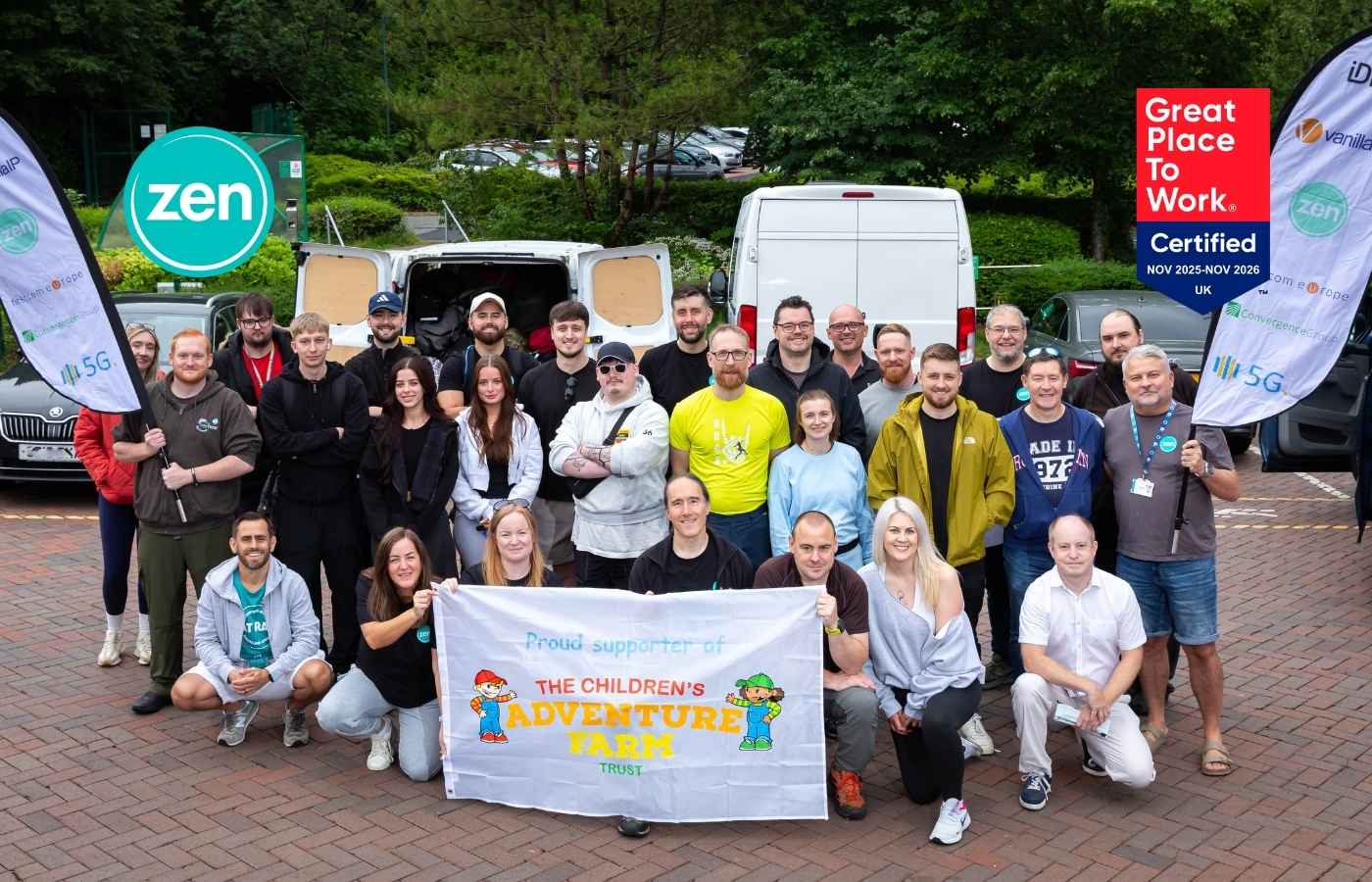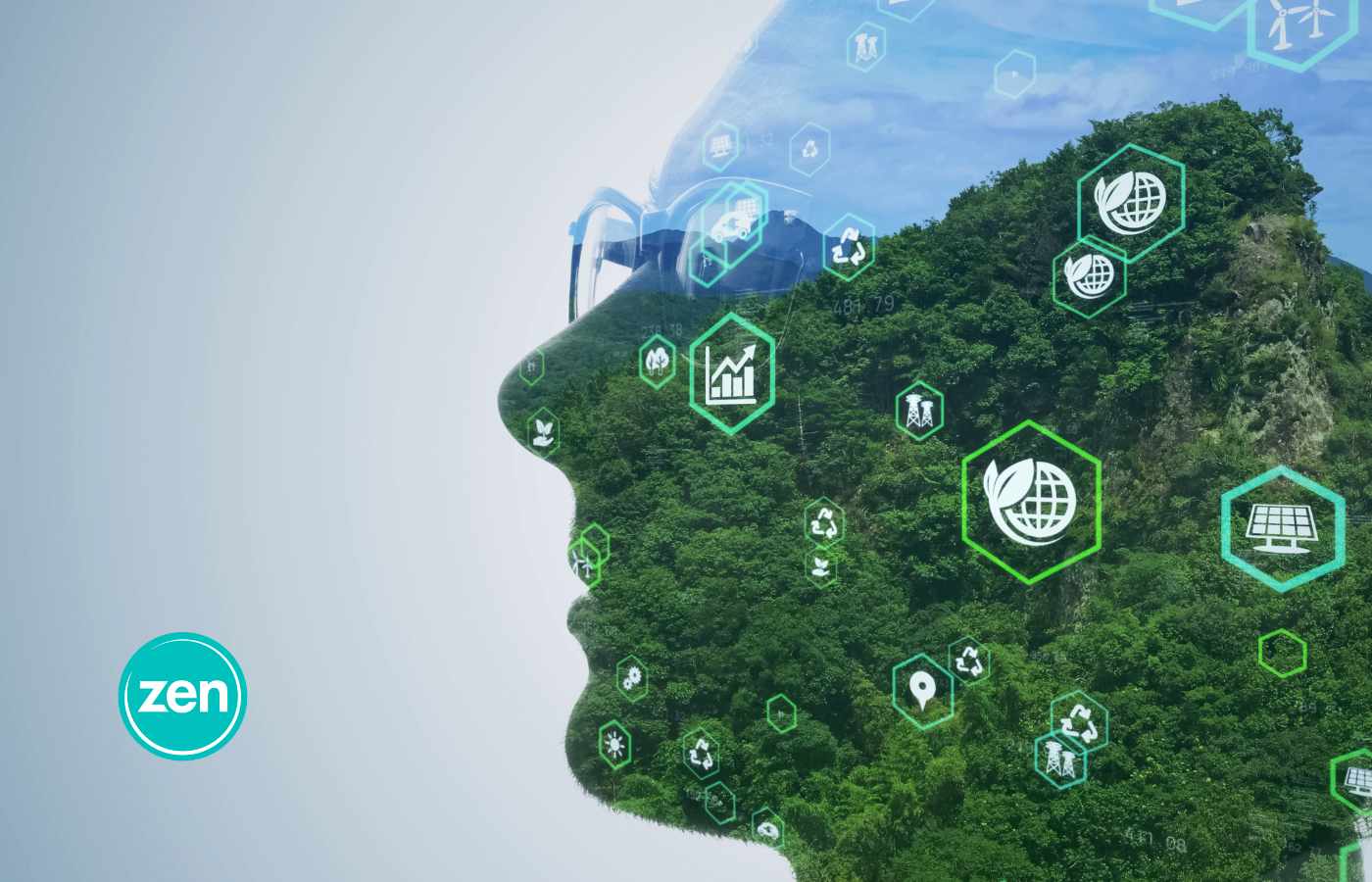In 2020, Zen became a certified B Corp business. We’re also carbon neutral, with a firm commitment to being net zero by 2040. And all of that is reflective of our commitment to putting people and planet first.
Part of that commitment includes our choice to send zero waste to landfill. But how does that work, how can we achieve it, and is it even possible?
The importance of recycling
We first introduced recycling to our Rochdale HQ back in 2008. If you think of the usual separate bins for paper, cans and food waste, for example, you get the picture.
By 2010, 95 per cent of our waste was being recycled, we’d reduced our paper usage, and we were well on our way to our zero-landfill goal. And that goal was achieved in 2014 when, for the first time, 100% of the waste generated at Zen was diverted from landfill.
But how is 100 per cent diverted from landfill even possible? After all, it’s easy to understand how paper and aluminium can be recycled, and single-use plastics can be reduced or even eliminated, but 100 per cent?
The figures
So let’s first look at some of the figures about what happens to our waste. We’ll use the most recently available figures from April 2023:
- 150Kg paper and card – all recycled
- 65Kg mixed plastics – all recycled
- 95Kg aluminium cans – all recycled
So far so good, but that's the traditionally 'easy' stuff to recycle.
- 980Kg mixed municipal waste – 294Kg recycled
- 440Kg organic food waste
By our reckoning, 34.9 per cent of our waste produced in April 2023 was recycled, but that leaves 65.1 per cent that wasn’t. So if all that waste wasn’t recycled, and we’re talking about zero landfill, where did it all go?
Waste management
Thanks to our contract with B & M Waste Services, we’ve been able to ensure that all the waste we produce that would typically be sent to landfill is put to better use instead.
Any waste that can’t be recycled is burnt to create a renewable energy source known as refuse-derived fuel, or RDF. And RDF provides a couple of benefits when it comes to greenhouse gas emissions. First, it helps to reduce the amount of methane produced by landfill by reducing the amount of waste that goes to landfill. Secondly, it provides an alternative means of electricity production than the burning of fossil fuels.
And in April 2023, Zen’s waste was used to produce 75KWh/tonne of electricity. Which probably means very little to most people, so let’s put that into perspective.
The energy equivalent of that equates to:
- 10 TVs powered for a full year
- 588 complete washing machine cycles
- 4 fridge freezers powered for a year, or
- 2,719 miles driven in a family electric car
As you can see, for just one month’s worth of waste, that’s pretty good. Imagine that over the course of a year, over hundreds or thousands of businesses. It’s easy to see how collectively we can all make a huge difference.
If you want to find out more about Zen’s environmental commitments, visit our site, and keep an eye out for future blog posts where we’ll go into further detail about what we’re up to.

Zen Internet - Home SalesSales
01706 902573
Zen Internet - Customer EnquiriesCustomer Enquiries
01706 902001


